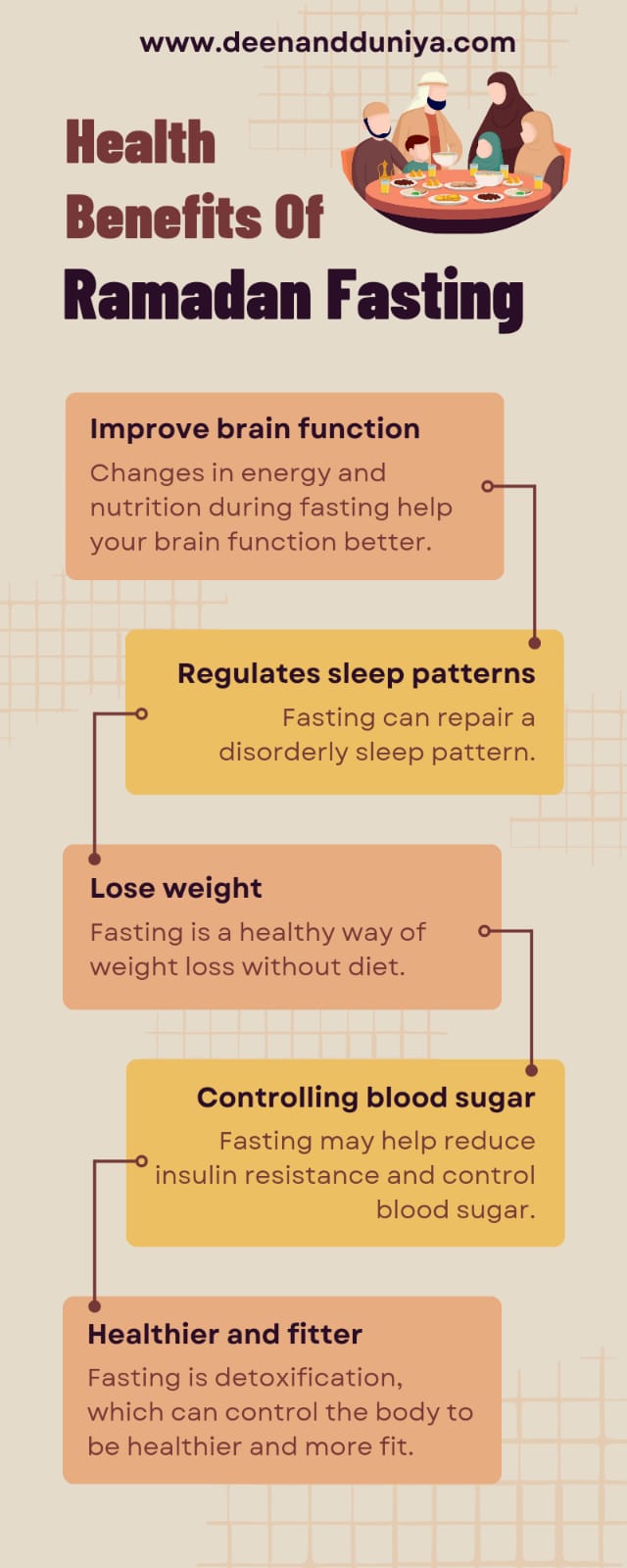HEALTH AND SPIRITUAL SIGNIFICANCE OF PRACTICING FASTING IN ISLAM
Fasting is an important and widely practiced religious observance in Islam. It is one of the Five Pillars of Islam and is mandatory for all able-bodied adult Muslims to observe during the month of Ramadan. Fasting involves abstaining from food, drink, and other physical needs from dawn until sunset. In this blog post, we will discuss the significance of fasting in Islam and its numerous benefits.
Significance of Fasting in Islam
Fasting is considered a spiritual and physical act of worship in Islam. It is believed to purify the soul, increase one’s piety, and strengthen the bond between the believer and Allah (SWT). The act of fasting is also a way to show solidarity with the less fortunate, who may not have access to necessities such as food and water.

Fasting during Ramadan is particularly significant because it is believed to be the month in which the first verses of the Quran were revealed to the Prophet Muhammad (PBUH). Muslims believe that during this month, the gates of heaven are open, the gates of hell are closed, and the devil is chained up, allowing them to focus on their spiritual growth.

Benefits of Fasting in Islam
Apart from its spiritual significance, fasting has numerous physical and psychological benefits. Some of the key benefits of fasting in Islam include:
- Improved physical health – Fasting can help to detoxify the body, boost the immune system, and promote weight loss. It has also been shown to lower blood pressure and improve insulin sensitivity, which can reduce the risk of chronic diseases such as diabetes, heart disease, and cancer.
- Improved mental health – Fasting can also have a positive impact on mental health. It has been shown to reduce stress, increase focus and clarity, and improve overall mood and emotional well-being.
- Increased empathy and compassion – Fasting can help to increase empathy and compassion towards others, particularly those who may be less fortunate. It can also promote a sense of community and unity among Muslims, as they come together to break their fast and share meals during Ramadan.

Spiritual Benefits of Fasting in Islam
Fasting in Islam has several spiritual benefits, including:
- Increased Self-Control and Discipline: Fasting requires a significant amount of self-control and discipline. Muslims who fast during Ramadan must resist the temptation to eat and drink during the day, which can help them develop self-control and discipline in other areas of their lives.
- Strengthening of Faith: Fasting is an act of worship and is believed to strengthen a Muslim’s faith in Allah. It is a time for reflection, prayer, and spiritual growth.
- Greater Appreciation for Blessings: Fasting helps Muslims appreciate the blessings they have been given, including food and drink. It can also foster empathy for those who are less fortunate and do not have access to these necessities.
Health Benefits of Fasting in Islam
Fasting in Islam has several health benefits, including:
- Improved Digestive System: Fasting gives the digestive system a much-needed break, which can help improve digestion and reduce inflammation in the gut.
- Weight Loss: Fasting can help with weight loss as it reduces caloric intake and boosts metabolism.
- Improved Heart Health: Fasting has been shown to improve heart health by reducing blood pressure, cholesterol levels, and inflammation in the body.
Fasting in Islam is not only a religious practice but also has numerous spiritual and health benefits. It helps strengthen faith and develop self-control, and discipline while also improving digestion, promoting weight loss, and enhancing heart health. Muslims all over the world observe fasting during the holy month of Ramadan as an act of worship and to reap the many benefits it offers.
-ALI RAZA



